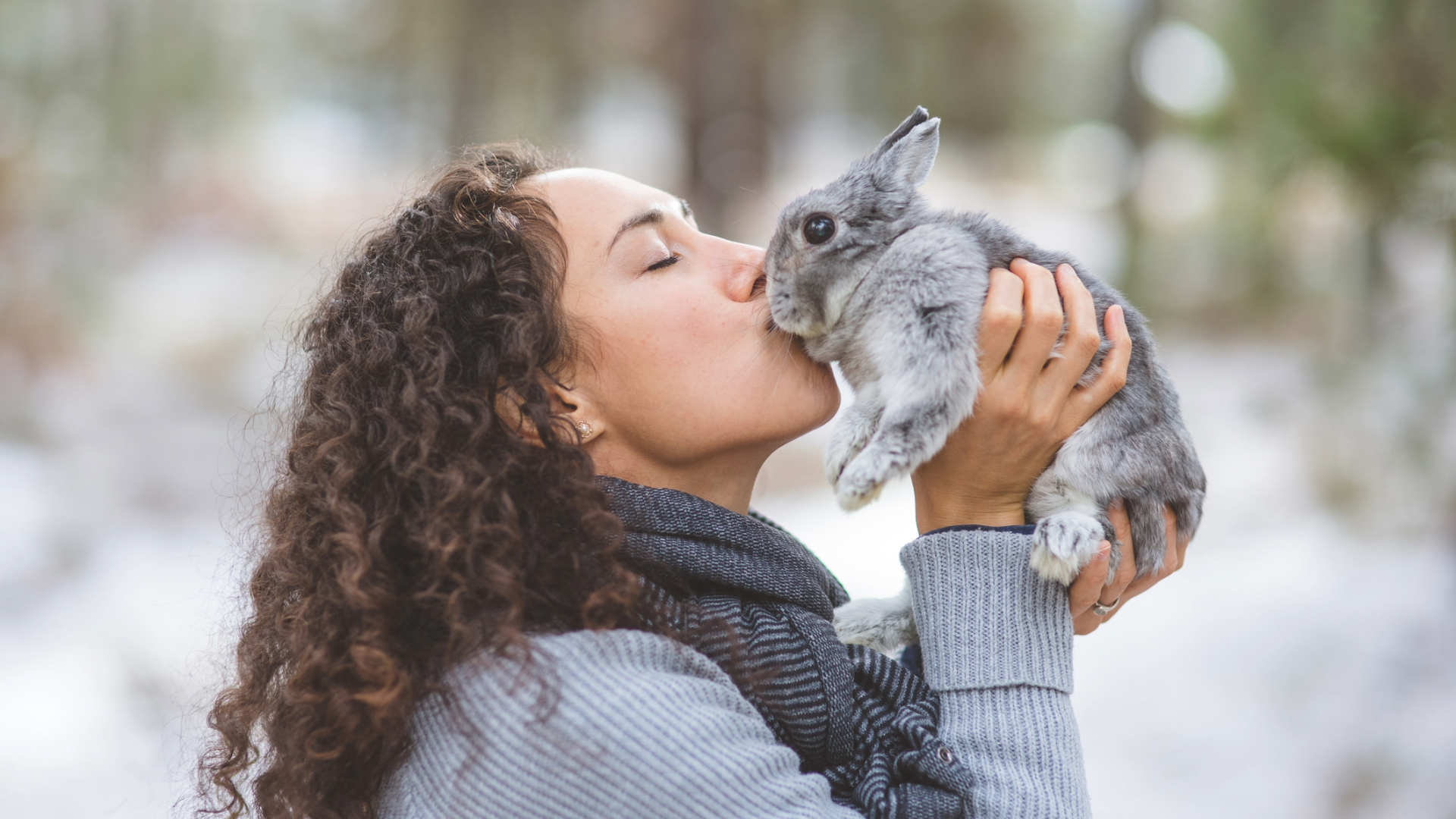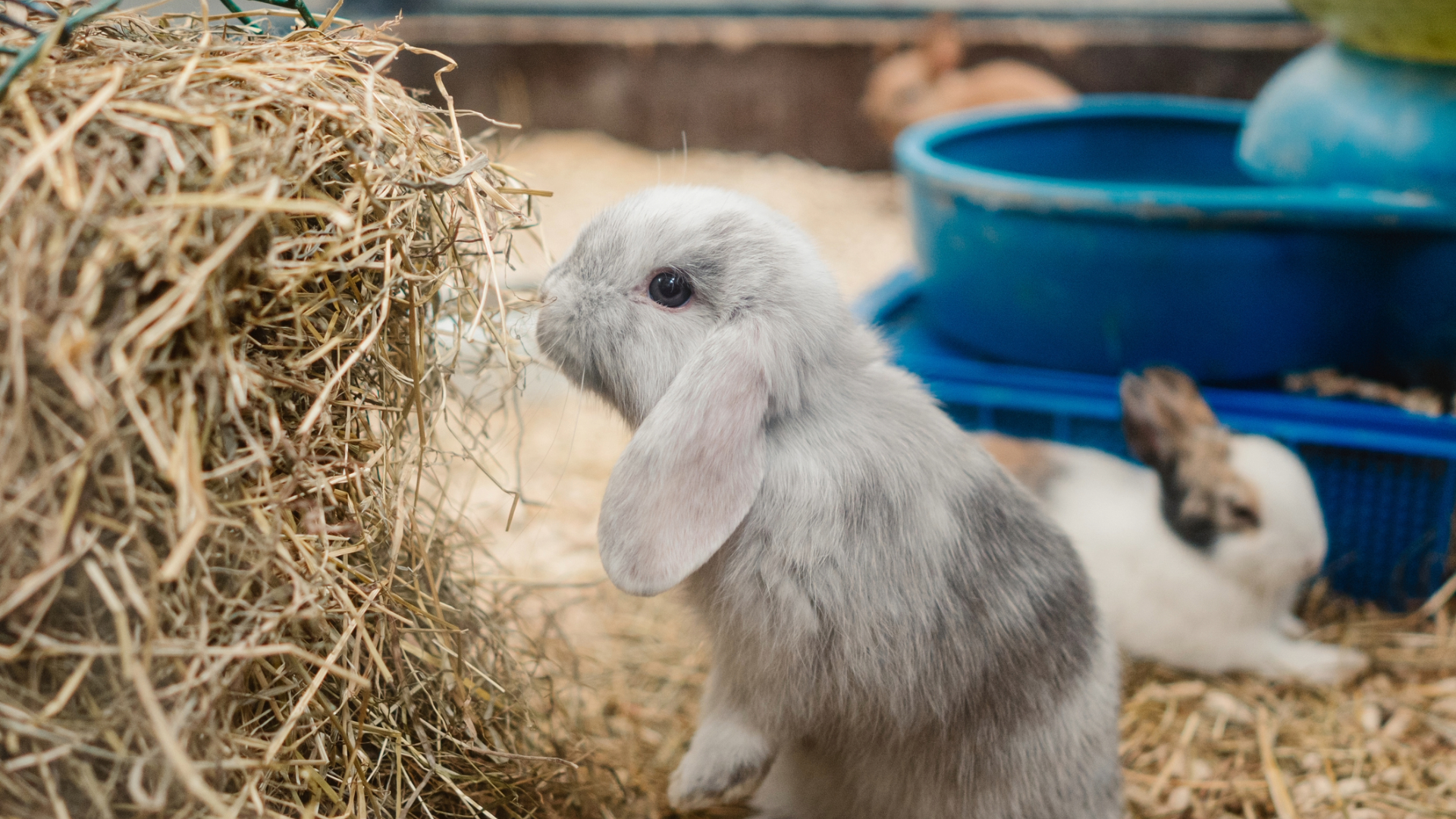Rabbit winter care: How to keep your bunny warm and happy
An expert vet shares her top tips for rabbit care in winter.

Although many of us welcome the winter season and look forward to getting cozy, the temperature drop can pose unique challenges for our fluffy friends, which is why rabbit winter care is super important.
Rabbits are delicate creatures that are sensitive to cold weather and require extra care to stay warm and comfortable during the chillier months. There are lots of ways to keep your bunny warm, like buying one of the best heated pet beds and weather-proofing their hutch, which vet Dr. Emma Chandley has explained below. Emma is a practicing vet with over 13 years of experience in small animal surgery and medicine. She has been a rabbit lover since she could walk and talk.
From providing adequate shelter to offering nutritious food and plenty of enrichment, here's everything you need to know about keeping your furry friend happy and healthy this winter.
How to take care of rabbits in winter
Rabbits are very sensitive to the cold and can easily become sick if they are exposed to harsh winter temperatures. Here are some top tips for taking care of rabbits in the winter:
Choose a suitable hutch: Make sure you pick one of the best outdoor rabbit hutches that are made from sturdy materials like wood. It must be insulated well so that it retains heat properly.
Placement of the hutch: Make sure you put your hutch out of the way of drafts or any place it will be exposed to rain, hail, or snow.
Bedding: It is very important to provide a warm sleeping area for your bunny using the best rabbit bedding. In the winter months, they will need a thick layer of fresh hay or straw. It is important to change the bedding regularly to make sure it is not wet or soiled from urine and feces.
Get the best advice, tips and top tech for your beloved Pets
Weatherproof the hutch: Ensure the hutch is protected from drafts and moisture build-up. Check there are no cracks or gaps in the wood and make sure the hutch isn't in a damp or moist environment.
Temperature: Make sure the hutch is warm enough throughout the day and night. You can use a thermometer to check the temperature. In winter your rabbit's hutch should be between 59–68°F. Their fur does provide some natural insulation but they still need help keeping warm, especially at night. Rabbits can tolerate colder temperatures if they have enough protection from the elements and a thick layer of bedding.

Good Nutrition: Always make sure your bunny has a good supply of the best hay for rabbits. They may need to eat more food in the winter months to maintain their energy levels. Offer your rabbit their daily measure of the best rabbit food. Lots of rabbits enjoy fresh vegetables too such as kale and carrots. For more advice, we've written a complete guide on what to feed a rabbit.
Adequate hydration: Your bunny must have access to fresh water 24/7. Rabbits can become dehydrated very quickly in cold weather. You can use a bowl or a water bottle with a nozzle. Check that the water is clean and that it has not frozen over.
Regular exercise: Keep your rabbit active – it has benefits for both their physical and mental health.
Visit your vet: Always ensure you keep up to date with your annual vet visits. Your vet will check your rabbits over, vaccinate them, monitor their general health status, and address any concerns.
Encourage playtime: This can be indoor or outdoor play, but in extremely cold temperatures, they're better off in the warm. This can be carried out by setting up a safe confined area where your bunny can hop and explore. The best rabbit toys, like tunnels, toys, and boxes can be used for them to explore and hide in. If you are letting your rabbit outside, they must be supervised at all times. Be cautious of ice or snow in the area your rabbit is playing as this may cause frostbite.
Andwe Small Animals Play Balls Rolling Chew Toys
Voted as the best rabbit toy for exercise by our editor Georgia, these rolling balls will keep your bunny active in the winter. You can also stuff them with your rabbit's favorite treats to activate their natural foraging instincts
Are rabbits ok outside in winter?
Rabbits can be kept outside in the winter months, however, it's important to take precautions to ensure maximum comfort and safety. Despite their fluffy fur coats, bunnies are still susceptible to cold-related illnesses such as frostbite and hypothermia.
In the wild, rabbits live in underground burrows in large groups. The temperature does not change much and is usually around 50°F.
A rabbit hutch placed outside doesn't have the same insulation. It is important to ensure that rabbits living in a hutch outside have constant access to a sleeping area that is draught-free, dry, and warm.

Do rabbits need a heater in the winter?
In general, rabbits do not need a heater in the winter. Their fur provides a good amount of insulation, and as long as their living environment is adequately protected from the cold and wet, they can stay warm and comfortable.
Depending on where you live, if it is a place with extremely cold temperatures, or if your bunny is elderly, very young, or has a compromised immune system, providing additional warmth may be necessary.
The ideal temperature range should be between 45°F and 75°F. Other ways to keep your bunny warm include:
Insulated Hutches: It is possible to line hutches with insulating material to keep heat in. Always make sure your rabbit has free movement in and out of the insulated part to prevent them from becoming too warm.
Heated pads or blankets: If necessary, you can use a one of the best heat pads for pets or a blanket to provide extra warmth. These must be used with caution as rabbits can easily become too hot. Always cover pads and mats so that your bunny isn't lying directly on them.
Found this helpful? Read: How to keep a rabbit warm in the winter and Housing rabbits outdoors.
Emma Chandley is a vet with 14 years of experience and has a keen interest in surgery. After graduating from the Royal Vet College in London in 2011, she achieved a postgraduate certificate in small animal surgery from the British Small Animal Veterinary Association and Nottingham Trent University. She was then awarded advanced practitioner status in the same discipline by The Royal College of Veterinary Surgeons. She has a black Labrador and two pygmy goats at home.


